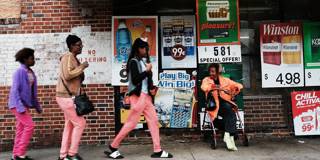Governments have allowed globalization to outpace them, and have permitted a small group of very wealthy individuals to flout the rule of law. If nothing is done to improve global governance, democracy itself could come under threat.
OXFORD – Across the world, populists are attracting votes with their promises to protect ordinary people from the harsh realities of globalization. The democratic establishment, they assert, cannot be trusted to fulfill this purpose, as it is too busy protecting the wealthy – a habit that globalization has only intensified.
For decades, globalization promised to bring benefits to all. On an international scale, it facilitated the rise of the Asian tigers and the BRICS countries (Brazil, Russia, India, China, and South Africa), produced rapid growth across Africa, and facilitated the boom in developed countries through 2007. It also created new opportunities and augmented growth within countries. But since the 2008 crash, many rich countries have been locked into austerity; the Asian economies have been slowing; the BRICS’ progress has been stalling; and many African countries have fallen back into debt.
All of this has contributed to rising inequality, which is now fueling discontent. Emmanuel Saez and Gabriel Zucman calculate that in the United States, the wealth gap is already wider than at any time since the Great Depression, with the richest 1% of households now holding almost half the country’s wealth.

OXFORD – Across the world, populists are attracting votes with their promises to protect ordinary people from the harsh realities of globalization. The democratic establishment, they assert, cannot be trusted to fulfill this purpose, as it is too busy protecting the wealthy – a habit that globalization has only intensified.
For decades, globalization promised to bring benefits to all. On an international scale, it facilitated the rise of the Asian tigers and the BRICS countries (Brazil, Russia, India, China, and South Africa), produced rapid growth across Africa, and facilitated the boom in developed countries through 2007. It also created new opportunities and augmented growth within countries. But since the 2008 crash, many rich countries have been locked into austerity; the Asian economies have been slowing; the BRICS’ progress has been stalling; and many African countries have fallen back into debt.
All of this has contributed to rising inequality, which is now fueling discontent. Emmanuel Saez and Gabriel Zucman calculate that in the United States, the wealth gap is already wider than at any time since the Great Depression, with the richest 1% of households now holding almost half the country’s wealth.